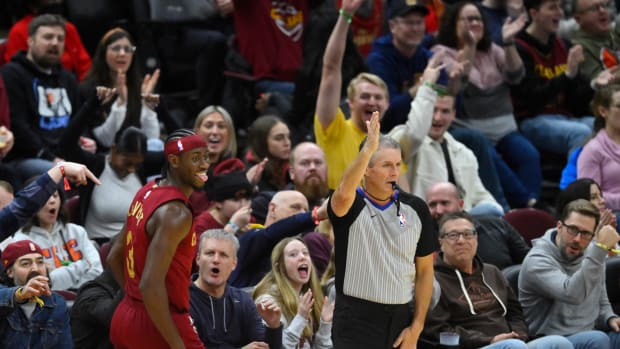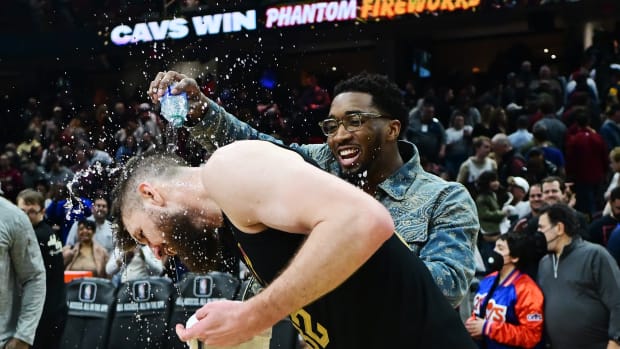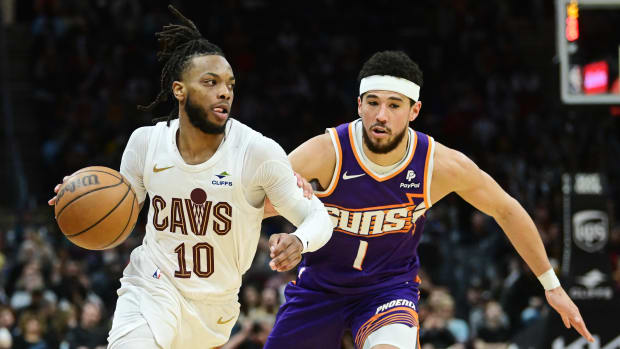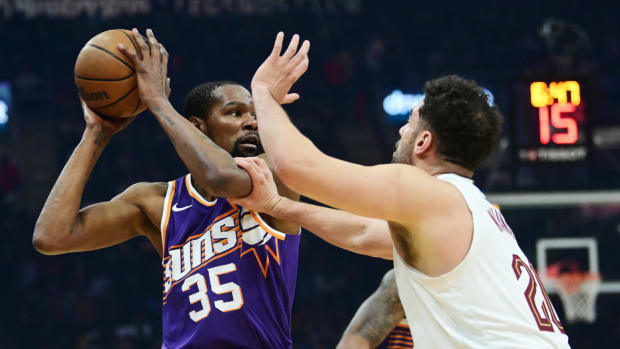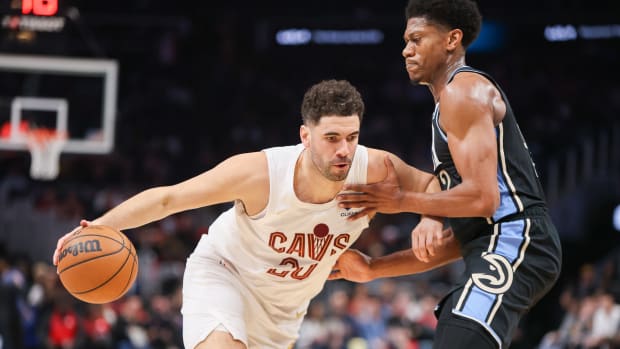Ball must continue to be the gatekeeper of Pelicans' offense
When New Orleans Pelicans guard Lonzo Ball brings the ball up, it's as if he's telepathically saying to his teammates, "OK, everyone in position. You go here, and you stay there."
A true point guard. A director who can sense openings before they burst, Ball is one of the smartest, yet most underrated young players in the NBA. His ability to control pace and movement, particularly in the half court, is stellar.
Injuries and doubts over his jumper made for a rocky first two years. Now, Ball is the gatekeeper of one of the league's most intriguing offenses.
He's a huge reason why before the shutdown, New Orleans tied for fourth in points per game (116.2), ranked fifth in 3-point percentage (37.2%) and tied for second in assists per game (27.0).
Ball and the Pelicans had their first live action since March on Wednesday, clobbering the Brooklyn Nets, 99-68, in a scrimmage. The game was one of three warm-ups each of the 22 teams will have to help shake off rust. It doesn't count toward anything, and regaining playing shape is paramount.
But what's clear is that though Zion Williamson and Brandon Ingram are dynamic playmakers -- especially in transition -- Ball is the team's true maestro.
On one play, Ball dribbled down the floor and passed to J.J. Redick. An elite shooter, Redick drew attention, and Ball took advantage of the defenders focusing on Redick. He received a pass from Redick and knocked down an open 3-pointer.
Ball ran a similar action with Jaxson Hayes and Josh Hart. With Ball on the baseline, Hart set a screen on Chris Chiozza. Ball was freed for a moment, but Chiozza recovered. Ball passed to Hayes, who then set a screen on Chiozza. With Ball open again, he made the 3-pointer.
Ball's innate ability to read the floor and understand spacing has been a good complement to his improved shooting; he's shot a career-high 38.3% from the 3-point line this season.
He no longer can just facilitate buckets for others -- he can create buckets for himself as well. He's scored a career-best 12.4 points a game this season.
That ability to shoot better makes him arguably the most important part of the offense. Williamson and Ingram are better overall players, with their scoring ability giving depth and substance.
But Ball is the one who makes the whole operation function to its best extent.
Without Ball, Williamson and Ingram would have to initiate a good chunk of offense by themselves.
This season, Williamson has received 12.9 passes per game from Ball, according to NBA.com stats. That's the most passes Williamson receives a game from any of his teammates; he shoots 47.4% from the field on passes from Ball.
Ingram has received 14.9 passes a game from Ball, and he shoots 36.2% on 3-pointers off passes from him.
Ball accounts for 67.0 passes a game, leading the Pelicans in the category. Ball also has the most passes made to him per game (64.4).
The Pelicans are at their best when Ball is reading defenses and making the right pass over and over again. Ball has averaged 7.0 assists a game this season.
Ball isn't going to wow fans with buckets. He might max out as a player who scores a smooth 15 points a game.
But his impact in seeing how his teammates can flourish, in addition to setting himself up every now and then, is why he needs to continue being the Pelicans' gatekeeper.
